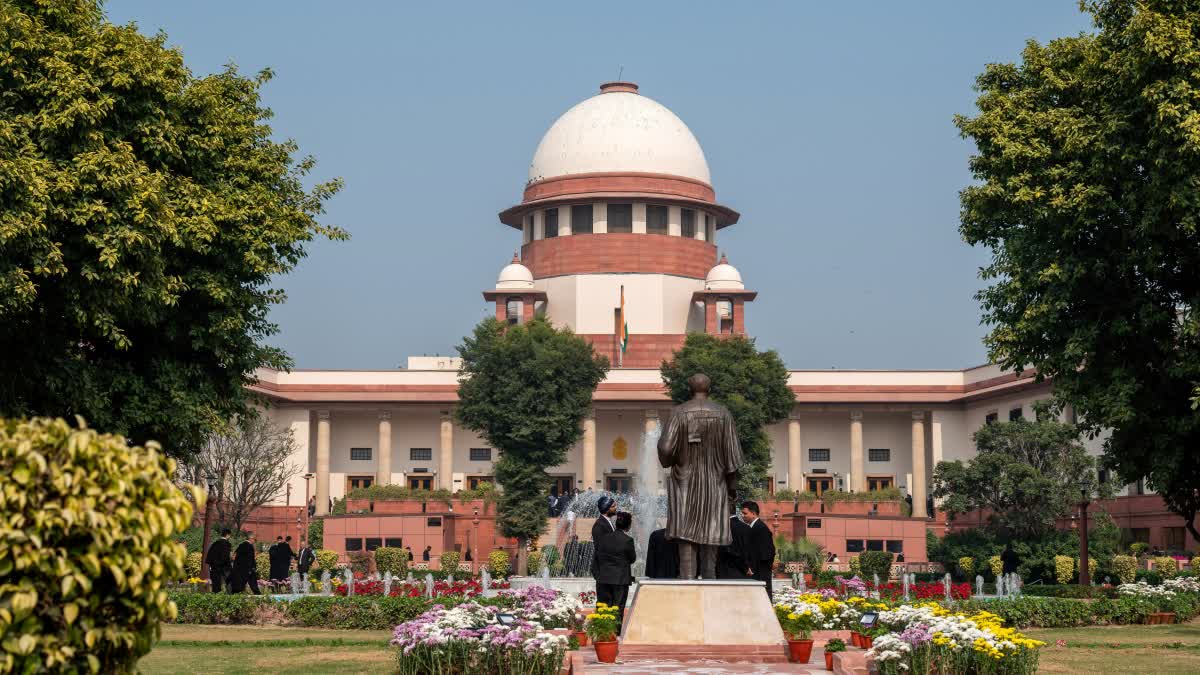New Delhi: The Supreme Court on Wednesday set aside a verdict of the Madras High Court, which granted bail to eight alleged PFI members and office bearers, saying UAPA has been enacted to provide for effective prevention of certain unlawful activities of individuals and associations, to deal with terrorist activities, and also to impose reasonable restrictions on the civil liberties of the persons in the interest of sovereignty and integrity of India.
A bench comprising Justices Bela M Trivedi and Pankaj Mithal said this court has often interpreted the counter terrorism enactments to strike a balance between the civil liberties of the accused, human rights of the victims, and compelling interest of the state.
Justice Trivedi, who authored the judgment on behalf of the bench, said it cannot be denied that national security is always of paramount importance and any act in aid to any terrorist act – violent or non-violent is liable to be restricted.
The bench observed that the investigation disclosed that the activities and undeclared objectives of PFI had a strong communal and anti-national agenda to establish an Islamic rule in India by radicalisation of Muslims and communalisation of issues.
"After recruitment as members of PFI, they were motivated towards violent terrorist activities by providing training through beginners courses and advanced training courses," it said.
"The Unlawful Activities (Prevention) Act (UAPA) is one of such Acts which has been enacted to provide for effective prevention of certain unlawful activities of individuals and associations, and to deal with terrorist activities, as also to impose reasonable restrictions on the civil liberties of the persons in the interest of sovereignty and integrity of India," said Justice Trivedi.
The bench said that it was conscious of the legal position that it should be slow in interfering with the order when bail has been granted by the High Court. However, it is equally well settled that if such order of granting bail is found to be illegal and perverse, it must be set aside, it added.
The bench allowed the appeal filed by the National Investigation Agency (NIA) against the Madras High Court's bail order of October, 2023, saying that a prima facie view on broad probabilities on their involvement was sufficient to reject bail.
Justice Trivedi said the High Court should not have taken a lenient view, more particularly when there was sufficient material to show their prima facie involvement in the alleged offences under the UAPA.
The bench said the High Court committed gross error in not considering the material/evidence in its right and proper perspective and in recording a perverse finding to the effect that there was no material to suggest the commission of any offence, which falls under Section 15 of UAPA.
"Having regard to the seriousness and gravity of the alleged offences, previous criminal history of the respondents as mentioned in the charge-sheet, the period of custody undergone by the respondents being hardly one and half years, the severity of punishment prescribed for the alleged offences and prima facie material collected during the course of investigation, the impugned order passed by the High Court cannot be sustained," said the bench.
The NIA had argued that the High Court did not consider the materials showing the accused were involved in radicalising the youth and imparting them training to commit terrorist acts and make the country an Islamic State by 2047 through armed struggle.
The bench, considering the charge sheet as also the other material and documents, said there are reasonable grounds for believing that the accusations against the respondents are prima facie true and that the mandate contained in the proviso to Section 43(D)(5) would be applicable for not releasing them on bail.
The apex court ordered the accused surrender forthwith before the NIA and also directed for expeditious trial since charge sheet already stood filed in the case.
The NIA had moved the top court challenging the Madras High Court order, passed in October 2023, granting bail to Barakhatullah, Idris, Mohd Tahir, Khalid Mohammad, Syed Khaja, Mohinudeen, Yasar Arafat and Fayaz Ahmed. Advocate Rajat Nair represented the NIA before the apex court. The High Court had overturned the trial court order, which declined to grant bail to the accused.
In September 2022, the NIA had registered an FIR against the respondents and other members and office bearers of PFI under various provisions of the IPC and the UAPA. The accused were arrested on September 22, 2022 and a charge-sheet was filed on March 17, 2023.



